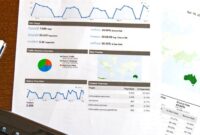In today’s fast-paced business landscape, making informed decisions is crucial for success. To stay ahead, organizations need to uncover their operational needs and make data-driven decisions.
Leveraging data analysis services enables companies to gain valuable insights into their operations, enhancing business intelligence. By doing so, businesses can optimize their strategies and improve overall performance.
Effective data analysis is key to understanding the intricacies of your organization, allowing you to make informed decisions that drive growth and innovation.
The Power of Data-Driven Decision Making
Data-driven decision making has revolutionized the way businesses operate and make strategic choices. By leveraging data insights, organizations can drive growth, improve efficiency, and stay ahead of the competition.
Identifying Critical Business Challenges
Every business faces challenges, but identifying the most critical ones is key to success. Data analysis helps organizations pinpoint areas that need improvement, whether it’s optimizing operations, enhancing customer experience, or improving product offerings.
By analyzing data, businesses can uncover patterns and trends that may not be immediately apparent. This enables them to address challenges proactively rather than reactively.
Connecting Data Insights to Strategic Goals
Once critical challenges are identified, the next step is to connect data insights to strategic goals. This involves aligning data analysis with the company’s overall objectives, ensuring that decisions made are in line with the company’s vision.
Aligning data insights with strategic goals enables businesses to make informed decisions that drive growth and improvement. It’s about using data to tell a story that guides the organization’s strategy.
By doing so, businesses can ensure that their data-driven decisions are strategic, effective, and contribute to long-term success.
Understanding Business Needs Through Data Analysis
The ability to analyze data effectively is key to understanding the complex needs of modern businesses. By leveraging data analysis services, companies can gain valuable insights into their operations, customer behavior, and market trends.
Key Analysis Methods for Business Intelligence
Several key analysis methods are crucial for business intelligence. These include:
- Descriptive analytics, which helps businesses understand what has happened.
- Diagnostic analytics, which identifies why something happened.
- Predictive analytics, which forecasts what is likely to happen in the future.
- Prescriptive analytics, which recommends actions based on data insights.
By applying these methods, businesses can make data-driven decision making a core part of their strategy.
Tools and Technologies for Effective Data Analysis
The right tools and technologies are essential for effective data analysis. Some of the most popular include:
- Business intelligence software, such as Tableau and Power BI, which enable data visualization and reporting.
- Statistical analysis software, like R and Python, which provide advanced analytical capabilities.
- Big data technologies, such as Hadoop and Spark, which handle large volumes of data.
These tools help businesses to process, analyze, and interpret complex data sets.
Overcoming Common Data Analysis Challenges
Despite its benefits, data analysis can be challenging. Common issues include:
- Data quality problems, which can lead to inaccurate insights.
- Lack of skilled personnel, which can hinder analysis efforts.
- Integration issues, which can make it difficult to combine data from different sources.
To overcome these challenges, businesses must invest in data analysis services and develop a robust data strategy that supports data-driven decision making.
Conclusion
Understanding business needs through data analysis is crucial for making informed decisions in today’s fast-paced business environment. By leveraging data-driven insights, organizations can drive strategic growth, improve operational efficiency, and enhance customer satisfaction.
Effective data analysis enables businesses to identify critical challenges, connect insights to strategic goals, and overcome common data analysis hurdles. By applying the methods and tools discussed, businesses can unlock valuable business insights that inform decision-making and drive success.
As organizations continue to navigate an increasingly complex business landscape, the importance of understanding business needs through data analysis will only continue to grow. By embracing a data-driven approach, businesses can stay ahead of the curve and achieve their goals.



